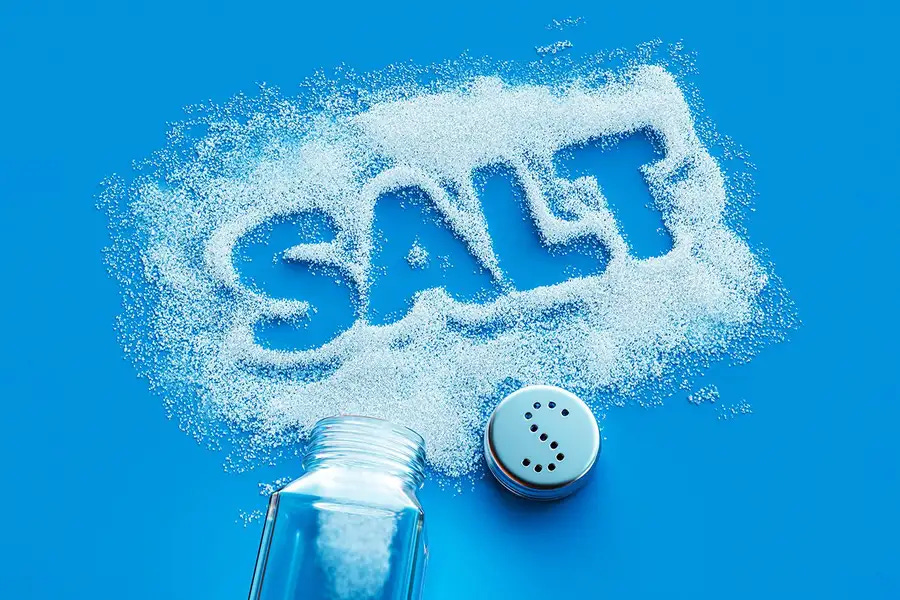Sci-Ed Update 319
Diet affects sperm & offspring, ChatGPT policy, Tetanus & parkinson disease, potassium may deter hypertension, 3-year degrees, anxious college students, cold plunges, that voice in our head, more!
Upending Assumptions About the Uniformity of DNA in the Human Body
…the human genome is made up of about 6 billion bases, and the human body contains billions, even trillions of cells. And it seems that errors and variations in the genome could actually arise far more often than we knew, according to a new study reported in Nature Genetics that analyzed blood stem cells. The research used advanced sequencing techniques to show that humans are made up of cells whose genomes may be far more heterogeneous that assumed. And these variations between cells are not always small. The research determined that about one out of every forty blood stem cells in healthy people carry major chromosomal alterations in their DNA. These chromosomal changes included copy number variations and rearrangements, but did not seem to cause any deleterious effect.
Kevin Patton comment→ we have known that there is some variation—this study adds to that knowledge
Read more→ AandP.info/szp
Snake venom’s deadly secrets decoded with fake blood vessels
We know tha snake venom is highly toxic to humans, but to learn more about how it works, venom must be studied in a lab. To use fewer laboratory animals and research better treatments for snake bites, a team in the Netherlands has built a new 3D model of imitation blood vessels they call an “organ-on-a-chip.” The experimental method is described in a study published June 4 in the journal Scientific Reports.
Read more→ AandP.info/7v3
We Used to Think Everybody Heard a Voice Inside Their Heads – But We Were Wrong
Only in recent years have scientists found that not everyone has the sense of an inner voice – and a new study sheds some light on how living without an internal monologue affects how language is processed in the brain.
This latest study, from researchers at the University of Copenhagen in Denmark and the University of Wisconsin-Madison in the US, also proposes a new name for the condition of not having any inner speech: anendophasia.
This is similar to (if not the same as) anauralia, a term researchers coined in 2021 for people who don't have an inner voice, nor can they imagine sounds, like a musical tune or siren.
Read more→ AandP.info/p55
Cold Plunges: The Science Behind Cold Water Therapy
Cold water immersion is an ancient practice that has roots in many different cultures, particularly those in high latitudes. Scandinavians have long lauded the post-sauna cold dip as a way to rinse off toxins, jump-start blood flow, and release endorphins. Even Hippocrates and Thomas Jefferson avowed the benefits of soaking in cold water — but is it worth it?
One study tracked 49 Finnish winter swimmers who dipped in cold water an average of four times per week. After four months, they reported a significant decrease in tension and fatigue, as well as an improvement in mood and memory compared to 33 non-swimmers. Plus, the swimmers who suffered from rheumatic diseases like arthritis or fibromyalgia reported pain relief.
Evidence also shows that cold water swimmers have more resilient immune systems. Researchers followed 85 Germans who regularly participated in cold water swims and found they contracted 40 percent fewer upper respiratory infections than a control group. The swimmers’ blood samples showed boosted antioxidant protection, which may be why they were better able to stave off illnesses.
Research underway in the U.K. has found cold water swimmers also produce a protein that protects the brain from degenerative diseases like dementia.
Read more→ AandP.info/n2s
PTSD, Anxiety Is Rising Among College Students
Rates of anxiety-linked disorders appear to be rising among U.S. college students
The number of young people battling PTSD or acute stress disorder rose between 2017 and 2022
The pandemic, school shootings and racial tensions might all have contributed, researchers believe
Read more→ AandP.info/lag
Universities try 3-year degrees to save students time, money
With college costs rising and some students and families questioning the return on investment of a four-year degree, a few pioneering state universities are exploring programs that would grant certain bachelor’s degrees in three years.
The programs, which also are being tried at some private schools, would require 90 credits instead of the traditional 120 for a bachelor’s degree, and wouldn’t require summer classes or studying over breaks. In some cases, the degrees would be designed to fit industry needs.
Read more→ AandP.info/ulj
How to easily satisfy your salt cravings without damaging your health
High blood pressure, or hypertension, is the world’s most common cause of death. And while there is little doubt that excess dietary salt (sodium chloride) can elevate blood pressure and that most people would benefit from eating less, many of us struggle to do so. We urgently need a better solution, and growing evidence suggests we may have one in potassium.
“Potassium is really important,” says Bruce Neal at the George Institute for Global Health in Sydney, Australia. “There’s no doubt that potassium will lower blood pressure.
Not everyone is sensitive to salt, but for the 50 per cent of the population who are, there is a linear relationship between sodium intake and blood pressure. Salt sensitivity is partly genetic and also more common in older people, women, African Americans and those with insulin resistance or chronic kidney disease.
The idea that potassium has an important influence on blood pressure has been around for a long time. In the 1970s, George Meneely at Vanderbilt University in Tennessee hypothesised that humans evolved to eat much more potassium and much less sodium than we do now, and that the dietary ratio of sodium to potassium was an important factor in blood pressure. Subsequent studies showed that people who consumed more potassium had lower blood pressure, and clinical trials have since confirmed the link. “There’s a whole bunch of trials which also suggest that potassium intake is good for you,” says Neal.
Read more→ AandP.info/g4c
Parkinson’s disease could be prevented by a recent tetanus vaccine
The claim stems from the finding that people who have recently been vaccinated against tetanus to prevent a wound infection are half as likely to later be diagnosed with Parkinson’s. “The closer to the vaccine date, the less likely individuals are to get diagnosed with Parkinson’s disease,” says Ariel Israel at Tel Aviv University in Israel.
The results suggest that widely available tetanus vaccines could prevent or treat Parkinson’s, although first they need to be repeated. If confirmed, “it’s big news,” says Israel. “I really hope that it will change the way we understand and treat the disease.”
Read more→ AandP.info/568
Need a policy for using ChatGPT in the classroom? Try asking students
Students are on the receiving end of AI-use policies, but rarely have agency over how they are developed. So, despite my personal reservations about the technology, I decided to develop an AI-use policy for my course alongside my students. Here’s what happened.
Read more→ AandP.info/uas
A dad’s diet affects his sperm — and his sons’ health
A dad’s sperm records his diet — and this record affects his sons’ metabolism, according to a study of mice and humans1.
Giving male mice a high-fat diet raises levels of some types of RNA in their sperm, the study found. The research also showed that the male offspring of male mice on this unhealthy diet had metabolic problems such as glucose intolerance, a characteristic of diabetes. The sons of human dads with a high body mass index (BMI) exhibited similar problems, according to epidemiological analysis.
The study was published in Nature on 6 June.
Read more→ AandP.info/y28











